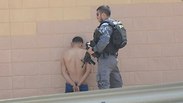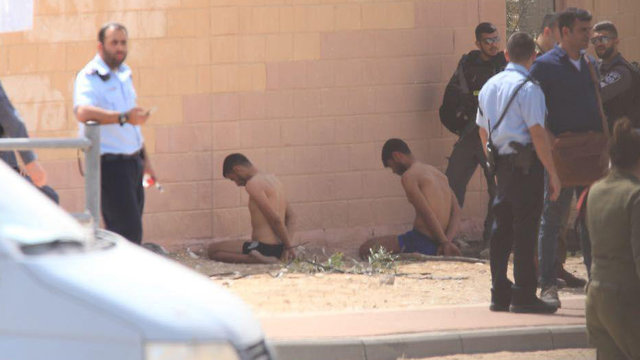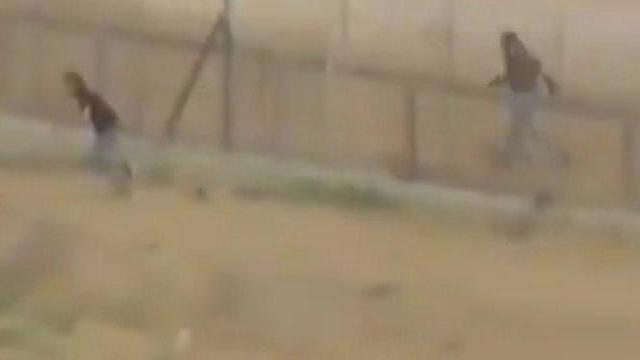

Infiltration from Gaza is our worst fear
Op-ed: Tuesday's incident, where three terrorists managed to cross the border and reach an Israeli community armed with knives and grenades, clarified that our fears are justified. If terrorists really want to do something, anything is possible. Learn to live with it—otherwise, it is impossible to live at all.
More than the Code Red sirens, more than missiles and even more than terror tunnels—the scenario of terrorists infiltrating directly through the Gaza border fence is the event that residents of the Gaza vicinity are most concerned about.
On Tuesday it happened, and only miraculously ended without casualties. Finger-pointing and criticism aside, something about the sense of security cracked that day. While the sense of security in the communities surrounding the Gaza Strip is relatively good, it is also fragile.
In the everyday atmosphere there is a sense of security, even if disturbances on the border fence put a damper on the Passover holiday, and even if rockets are fired here and there. But when the paths near the settlements are freely treaded by three Palestinians armed with grenades and knives, anxiety rises. The nightmare scenario becomes reality.
It will take time, a long time, for this event to be forgotten—but we all know it will happen eventually, because it is human nature and that is the nature of the residents of the Gaza vicinity. Families will not leave because of the infiltration, and the number of children in the playgrounds in the surrounding communities will not decrease. The special relationship between the IDF and the residents will be maintained.
All this is true, but nevertheless the infiltration incident sharpened the frightening understanding that despite everything, if the terrorists really want to, then anything is possible. There is no such thing as one hundred percent protection. The border is not hermetic. Our fears are justified. It can happen. This is reality. Learn to live with it, because otherwise it is impossible to live at all.
Currently, the barrier project is being built around the Gaza Strip, which is part of an underground obstacle against tunnels, and its upper part is a massive fence. The fence, which is identical to the fence that is currently located along the Israel-Egypt border, will be a significant obstacle and almost entirely prevent infiltrations such as Tuesday's, but there will always be a small hole through which it will be possible to penetrate Israeli territory.
Residents of the Gaza vicinity do not delude themselves into thinking they can somehow be completely safe. Hamas or any other organization will continue its efforts to try to attack Israel in any way possible. The knowledge that the IDF is defending us makes a significant contribution to the sense of security, and the army has a very significant role in the growth of the settlements and in the decision of new residents to settle in the Gaza vicinity.
An event like Tuesday's was expected, but should not have happened. The IDF also understands that this is a serious failure, as they have admitted Wednesday. But this failure is exactly the same as the small theoretical hole in the nearly, though not quite, perfect defense barrier for the Gaza vicinity communities.
Ynet reporter Matan Tzuri lives in a community in the Gaza vicinity.

















